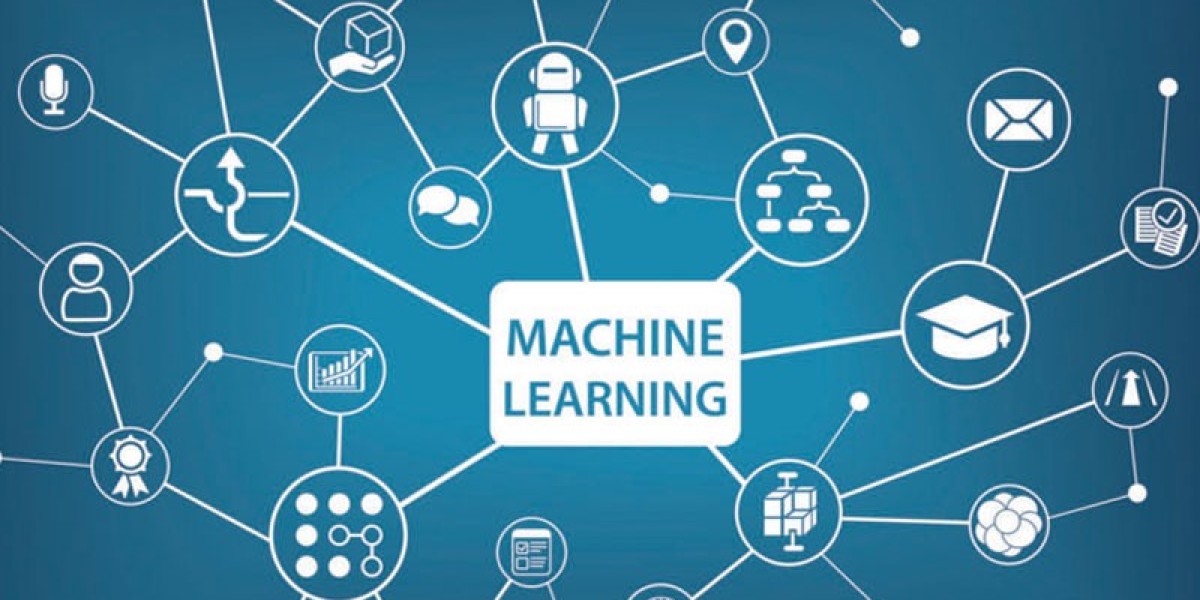What Is Machine Learning?
Before diving into its applications in healthcare, it's essential to understand what machine learning is. In simple terms, machine learning is a type of artificial intelligence (AI) that allows computers to learn from data and improve their performance over time without being explicitly programmed. Think of it as teaching a computer to recognize patterns and make decisions based on those patterns—similar to how humans learn from experience.
Machine learning can be applied to various fields, but its impact on healthcare has been particularly profound. From predicting patient outcomes to personalizing treatments, machine learning is transforming how we approach healthcare in ways we never thought possible.
The Role of Machine Learning in Healthcare
Machine learning is more than just a buzzword; it's a powerful tool that’s reshaping the healthcare industry. By analyzing vast amounts of data, machine learning algorithms can identify patterns and trends that might be missed by the human eye. This capability is particularly valuable in healthcare, where the stakes are high, and early detection can save lives. Let’s explore some specific ways machine learning is used in healthcare.
1. Predictive Analytics for Patient Care
One of the most significant applications of machine learning in healthcare is predictive analytics. By analyzing historical data, machine learning models can predict future health outcomes with remarkable accuracy. For example, machine learning algorithms can forecast which patients are at risk of developing chronic conditions such as diabetes or heart disease. This allows healthcare providers to intervene early, potentially preventing the onset of these conditions.
Predictive analytics can also be used in hospital settings to predict patient readmissions, helping hospitals allocate resources more effectively. Imagine a system that can alert doctors when a patient is likely to be readmitted based on their medical history. This would allow healthcare professionals to take proactive steps to reduce the likelihood of readmission, improving patient care and reducing costs.
2. Personalized Treatment Plans
Everyone’s body responds differently to treatments, and what works for one person may not work for another. This is where machine learning comes into play. By analyzing a patient’s genetic makeup, lifestyle, and medical history, machine learning can help create personalized treatment plans tailored to each individual.
For instance, in cancer treatment, machine learning algorithms can analyze data from thousands of patients to determine which treatments are most effective for specific types of cancer. This approach, known as precision medicine, ensures that patients receive the most effective treatment for their unique condition, improving outcomes and reducing side effects.
3. Early Detection of Diseases
Early detection is crucial in the fight against diseases like cancer, where early intervention can significantly improve survival rates. Machine learning has proven to be a game-changer in this area. By analyzing medical records, lab results, and even data from wearable devices, machine learning algorithms can identify the early signs of diseases long before symptoms appear.
For example, in breast cancer screening, machine learning models can analyze mammograms to detect cancerous tumors at an early stage, often with greater accuracy than human radiologists. This early detection can lead to earlier treatment and, ultimately, better patient outcomes.
4. Medical Imaging and Diagnostics
Medical imaging is another area where machine learning is making a significant impact. Traditional diagnostic methods rely heavily on human interpretation, which can be time-consuming and prone to error. Machine learning algorithms, on the other hand, can analyze medical images—such as X-rays, CT scans, and MRIs—much faster and with greater accuracy.
For instance, machine learning models can identify abnormalities in medical images, such as tumors or fractures, that may be missed by the human eye. This not only speeds up the diagnostic process but also reduces the likelihood of misdiagnosis, ensuring that patients receive the correct treatment as quickly as possible.
5. Drug Discovery and Development
The process of developing new drugs is lengthy and expensive, often taking years and billions of dollars. However, machine learning is helping to streamline this process, making it faster and more cost-effective. By analyzing vast datasets of chemical compounds, genetic information, and clinical trial data, machine learning algorithms can identify potential drug candidates more quickly than traditional methods.
One of the most exciting developments in this area is the use of machine learning to predict how different compounds will interact with the human body. This allows researchers to focus their efforts on the most promising drug candidates, potentially bringing life-saving medications to market more quickly.
6. Virtual Health Assistants
In recent years, virtual health assistants have become increasingly popular, offering patients a convenient way to manage their health from the comfort of their homes. These assistants, powered by machine learning, can answer questions, provide health tips, and even monitor patients’ symptoms.
For example, a virtual health assistant can remind patients to take their medication, track their progress, and alert healthcare providers if something seems amiss. This can be particularly valuable for patients with chronic conditions who need ongoing care and support.
7. Enhancing Hospital Operations
Machine learning isn’t just transforming patient care; it’s also revolutionizing the way hospitals operate. By analyzing data on patient flow, staffing levels, and resource utilization, machine learning algorithms can help hospitals optimize their operations.
For example, machine learning models can predict peak times in the emergency department, allowing hospitals to allocate staff more effectively and reduce wait times. Additionally, these models can help hospitals manage inventory, ensuring that they have the necessary supplies on hand without overstocking.
8. Managing and Analyzing Big Data
The healthcare industry generates massive amounts of data every day, from patient records to research studies. Managing and analyzing this data can be overwhelming, but machine learning is up to the task. By processing and analyzing large datasets, machine learning can uncover trends and insights that would be impossible to identify manually.
For instance, machine learning can help researchers identify patterns in genetic data that could lead to new treatments for diseases. It can also analyze electronic health records (EHRs) to identify trends in patient outcomes, helping healthcare providers improve the quality of care.
9. Ethical Considerations in Healthcare AI
While the benefits of machine learning in healthcare are undeniable, it’s important to consider the ethical implications of these technologies. Issues such as data privacy, algorithmic bias, and the potential for job displacement are all concerns that need to be addressed.
For example, if a machine learning algorithm is trained on biased data, it may produce biased results, leading to disparities in care. Similarly, the use of patient data in machine learning raises concerns about privacy and consent. As we continue to develop and deploy these technologies, it’s crucial that we do so in a way that is ethical and equitable.
10. The Future of Machine Learning in Healthcare
The future of machine learning in healthcare is incredibly promising. As these technologies continue to evolve, we can expect to see even more innovative applications that will further improve patient care and outcomes. From personalized medicine to predictive analytics, the possibilities are endless.
However, it’s important to remember that machine learning is a tool, not a replacement for human healthcare providers. While it can enhance and support the work of doctors and nurses, it cannot replace the human touch that is so essential to patient care.
Read More : WHAT IS THE FUTURE OF MACHINE LEARNING IN 2023?
FAQs
1. How does machine learning improve patient care?
Machine learning improves patient care by predicting health outcomes, personalizing treatment plans, and enabling early detection of diseases, allowing for timely and effective interventions.
2. Can machine learning replace doctors and nurses?
No, machine learning cannot replace healthcare professionals. It is a tool that supports and enhances their work by providing insights and automating routine tasks, but the human touch remains irreplaceable.
3. What are the ethical concerns associated with machine learning in healthcare?
Ethical concerns include data privacy, algorithmic bias, and the potential for job displacement. Ensuring that machine learning is used ethically and equitably is crucial. Conclusion
Machine learning is transforming healthcare in ways we could have only imagined a few years ago. From early disease detection to personalized treatment plans, the impact of these technologies is profound. As we look to the future, it’s clear that machine learning will continue to play a crucial role in improving patient care and outcomes. However, it’s essential that we approach these advancements with caution, ensuring that they are implemented in a way that is ethical and equitable.



